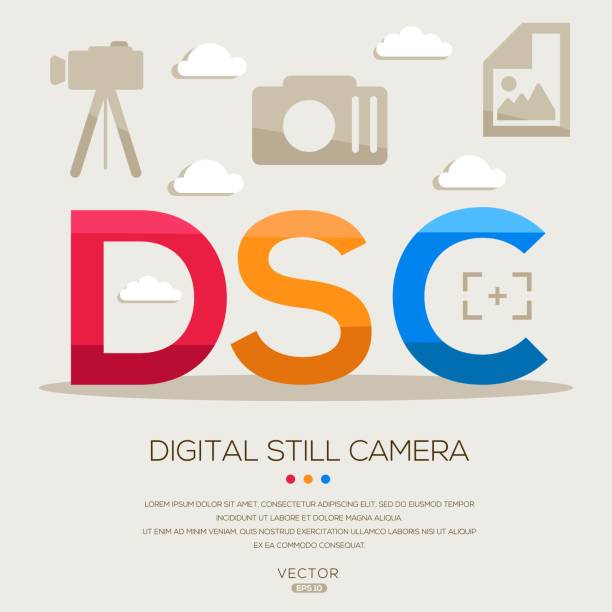Business
How to Start DSC Business: Complete Guide to Digital Signature Certificate Business
Setting up a DSC business or Digital Signature Certificate business is a good earning opportunity nowadays in this era of new digital economy, where everything is changing so quickly. With India and several other countries steadily progressing towards a paperless transaction economy, electronic authentication and digital signatures are on the rise globally. Digital documents are now ubiquitous, ranging from contracts to taxation, and everything in-between, which the government, private sector, and even individuals lean on more so with each passing day. In that context, knowing how to get into the DSC business may provide you a road to an endurable and prosperous financial future.
What Is Digital Signature Certificate(DSC)
To get into the business part, initially one have to know what Digital Signature Certificate is. A DSC is a digital key that serves as a certificate to validate the identity of the certificate holder. It is issued by the Certifying Authorities or CA and used for the secure signing of electronic documents. While just used for authorization, digital signature indicates data honesty and non-rebuttal. Such utility of DSCs makes them imperative for filing income tax returns, signing PDFs, and for sending e-tendering into the system. Digital identity verification is gaining steam, and it makes this space particularly relevant.
The reason behind the booming demand for DSC Business
With digital governance and corporate digitization taking shape in India DSC services have a greater scope. With plans like the Digital India, the usage of e-documents in official process has also been on the rise. As digital signature solutions are gaining momentum globally, sectors like banking, insurance, legal services and education are also moving towards digital signature processes and minimizing paperwork. This means that anyone knowing how to kick start a DSC business can access a huge market of professionals and organizations that require DSCs for their daily workflow.
Mandatory Certificates and Legal Permission
Hence, to conduct business with Digital Signature Certificates (DSC) one has to become a Registration Authority (RA) under a licensed Certifying Authority (CA) registered with the Controller of Certifying Authorities (CCA) and operate under its supervision. The CCA (Controller of Certifying Authorities) of India is the Government Body that regulates the issuance and use of digital signature certificates. You’ll have to sign an agreement with a CA and meet their technical and administrative requirements. Approved users are essentially intermediaries, gathering user data, verifying identities, and issuing DSCs.
DSC Business Investment and Infrastructure
Investment will not be high when you are running the DSC business as compared to other IT-businesses. You will require one PC system has an easy and secure web get admission to, biometric fingerprint scanners, and a pc with a digital camera to carry out KYC verifications. The majority of the CAs have a registration kit that gives you few software tools and support services. In other words, you don’t necessarily need to find yourself a nice office right away — a small office, or even your home, can suffice for just starters. But is vital for building credibility and long-term business growth to uphold secure data processing and customer service standards.
Market Classification and Revenue Estimation
Potential is extensive for Digital Signature Certificate service. Chartered accountants, company secretaries, tax consultants, and legal firms, corporate entities, and even government contractors (government contractors can be a good source in a long time). Besides, for the company incorporation, the GST filings and EPFO too, DSCs are compulsory. It guarantees your customer base continues to grow. Quick service and clear pricing will earn you a steady commission and renewal fee revenue stream. While you can master how to build up a DSC company, taking it to a local or nationwide level is realistic with effective marketing and customer retention techniques.
Collaboration with a sound Certifying Authority
Partnering with a trusted Certifying Authority is one of the most crucial stages of the process of setting up your DSC business. The CA gives you access to their digital certificate issuance system and tools to authenticate documents of course that the user needs. Other reputed CAs provide training, marketing materials, and compliance support as well. Selecting the appropriate partner allows you to maintain data integrity, and also follow the legalities of obtaining and processing it, as well as provide the highest quality services to your clients. They also help in boosting your brand credibility and trust in the market.
Successful Marketing of Your DSC Services
Growing in the DSC industry will not be possible without good marketing. Develop a professional website focused on your experience, services, and benefits you offer for the use of DSCs. 15:Invest in SEO, Social Media Marketing & Email Marketing Keywords : how to start dsc business, dsc for gst, dsc for filing income tax, make money dsc business, best dsc services You can build an authority in your brand by offering educational content, video tutorials, free consultations, or something similar. This means clients from all over your target area will come to you organically, thanks to your strong online presence.
Compliance and Data Security
Since a Digital Signature Certificate is employed for signing sensitive data, it is essential to preserve the highest degree of safety using the data. Do always know that while your CA will have their own standards to follow, you also must follow the various government regulations, as well as the standards determined by the CCA or other certifying organizations. That involves things like encrypting customers, maintaining audit trails, secure handling of identity proof documents etc. Not complying with the above can result in some legal penalties and loss of trust in customers. Perform software updates on a regular basis, along with internal audits to maintain compliance and risk-free operations.
Talent and Skilling III
Although the entry barrier to the DSC business is low at a purely technical level, appropriate skills can differentiate you from the competition. Get yourself acquainted with public key infrastructure (PKI), digital encryption, and the authentication of documents. Keep abreast with CCA guides and CA mandatory orders. Most of the Certifying Authorities also conduct training for Registration Authorities. A trained team can quickly perform the verification, which will minimize errors and deliver a better experience for clients. Keeping your skills up-to-date allows for greater alignment with current trends in digital transformation for your business.
Scaling Your DSC Business
Once your DSC venture is set up to run, consider scaling. You can create a sub-team of sub-agents, have your own branches the same in your own way through the franchise concept. Value-added services like company registration, GST filing, e-tender consultancy can also contribute to revenue. Working with law firms, accounting and corporate service providers can lead to a consistent flow of referral clients. This is a natural progression of your DSC journey and can turn your DSC into a true digital service enterprise as long as you remain committed to providing quality service, compliance, and innovating capabilities.
Conclusion
As the world gets more and more digital, Digital Signature Certificates are imperative tools for business and governance. Entrepreneurs get a competitive edge by knowing how to start DSC business in the digital service space. The DSC business is uniquely positioned for robust growth with a combination of low investment, clear regulations and increasing demand. Therefore, with legal compliance, client satisfaction, and digital marketing aspects ensured, it can help you build a successful DSC business that caters to the digital identity needs of individuals and organizations.
Business
How to Start DSC Business: Complete Guide to Digital Signature Certificate Business

Setting up a DSC business or Digital Signature Certificate business is a good earning opportunity nowadays in this era of new digital economy, where everything is changing so quickly. With India and several other countries steadily progressing towards a paperless transaction economy, electronic authentication and digital signatures are on the rise globally. Digital documents are now ubiquitous, ranging from contracts to taxation, and everything in-between, which the government, private sector, and even individuals lean on more so with each passing day. In that context, knowing how to get into the DSC business may provide you a road to an endurable and prosperous financial future.
What Is Digital Signature Certificate(DSC)
To get into the business part, initially one have to know what Digital Signature Certificate is. A DSC is a digital key that serves as a certificate to validate the identity of the certificate holder. It is issued by the Certifying Authorities or CA and used for the secure signing of electronic documents. While just used for authorization, digital signature indicates data honesty and non-rebuttal. Such utility of DSCs makes them imperative for filing income tax returns, signing PDFs, and for sending e-tendering into the system. Digital identity verification is gaining steam, and it makes this space particularly relevant.
The reason behind the booming demand for DSC Business
With digital governance and corporate digitization taking shape in India DSC services have a greater scope. With plans like the Digital India, the usage of e-documents in official process has also been on the rise. As digital signature solutions are gaining momentum globally, sectors like banking, insurance, legal services and education are also moving towards digital signature processes and minimizing paperwork. This means that anyone knowing how to kick start a DSC business can access a huge market of professionals and organizations that require DSCs for their daily workflow.
Mandatory Certificates and Legal Permission
Hence, to conduct business with Digital Signature Certificates (DSC) one has to become a Registration Authority (RA) under a licensed Certifying Authority (CA) registered with the Controller of Certifying Authorities (CCA) and operate under its supervision. The CCA (Controller of Certifying Authorities) of India is the Government Body that regulates the issuance and use of digital signature certificates. You’ll have to sign an agreement with a CA and meet their technical and administrative requirements. Approved users are essentially intermediaries, gathering user data, verifying identities, and issuing DSCs.
DSC Business Investment and Infrastructure
Investment will not be high when you are running the DSC business as compared to other IT-businesses. You will require one PC system has an easy and secure web get admission to, biometric fingerprint scanners, and a pc with a digital camera to carry out KYC verifications. The majority of the CAs have a registration kit that gives you few software tools and support services. In other words, you don’t necessarily need to find yourself a nice office right away — a small office, or even your home, can suffice for just starters. But is vital for building credibility and long-term business growth to uphold secure data processing and customer service standards.
Market Classification and Revenue Estimation
Potential is extensive for Digital Signature Certificate service. Chartered accountants, company secretaries, tax consultants, and legal firms, corporate entities, and even government contractors (government contractors can be a good source in a long time). Besides, for the company incorporation, the GST filings and EPFO too, DSCs are compulsory. It guarantees your customer base continues to grow. Quick service and clear pricing will earn you a steady commission and renewal fee revenue stream. While you can master how to build up a DSC company, taking it to a local or nationwide level is realistic with effective marketing and customer retention techniques.
Collaboration with a sound Certifying Authority
Partnering with a trusted Certifying Authority is one of the most crucial stages of the process of setting up your DSC business. The CA gives you access to their digital certificate issuance system and tools to authenticate documents of course that the user needs. Other reputed CAs provide training, marketing materials, and compliance support as well. Selecting the appropriate partner allows you to maintain data integrity, and also follow the legalities of obtaining and processing it, as well as provide the highest quality services to your clients. They also help in boosting your brand credibility and trust in the market.
Successful Marketing of Your DSC Services
Growing in the DSC industry will not be possible without good marketing. Develop a professional website focused on your experience, services, and benefits you offer for the use of DSCs. 15:Invest in SEO, Social Media Marketing & Email Marketing Keywords : how to start dsc business, dsc for gst, dsc for filing income tax, make money dsc business, best dsc services You can build an authority in your brand by offering educational content, video tutorials, free consultations, or something similar. This means clients from all over your target area will come to you organically, thanks to your strong online presence.
Compliance and Data Security
Since a Digital Signature Certificate is employed for signing sensitive data, it is essential to preserve the highest degree of safety using the data. Do always know that while your CA will have their own standards to follow, you also must follow the various government regulations, as well as the standards determined by the CCA or other certifying organizations. That involves things like encrypting customers, maintaining audit trails, secure handling of identity proof documents etc. Not complying with the above can result in some legal penalties and loss of trust in customers. Perform software updates on a regular basis, along with internal audits to maintain compliance and risk-free operations.
Talent and Skilling III
Although the entry barrier to the DSC business is low at a purely technical level, appropriate skills can differentiate you from the competition. Get yourself acquainted with public key infrastructure (PKI), digital encryption, and the authentication of documents. Keep abreast with CCA guides and CA mandatory orders. Most of the Certifying Authorities also conduct training for Registration Authorities. A trained team can quickly perform the verification, which will minimize errors and deliver a better experience for clients. Keeping your skills up-to-date allows for greater alignment with current trends in digital transformation for your business.
Scaling Your DSC Business
Once your DSC venture is set up to run, consider scaling. You can create a sub-team of sub-agents, have your own branches the same in your own way through the franchise concept. Value-added services like company registration, GST filing, e-tender consultancy can also contribute to revenue. Working with law firms, accounting and corporate service providers can lead to a consistent flow of referral clients. This is a natural progression of your DSC journey and can turn your DSC into a true digital service enterprise as long as you remain committed to providing quality service, compliance, and innovating capabilities.
Conclusion
As the world gets more and more digital, Digital Signature Certificates are imperative tools for business and governance. Entrepreneurs get a competitive edge by knowing how to start DSC business in the digital service space. The DSC business is uniquely positioned for robust growth with a combination of low investment, clear regulations and increasing demand. Therefore, with legal compliance, client satisfaction, and digital marketing aspects ensured, it can help you build a successful DSC business that caters to the digital identity needs of individuals and organizations.
Business
How to Start a Clothing Business with Buying Wholesale: Step-by-Step Launch Plan

Wholesale purchasing is a cost-effective way to launch a clothing business and can be an exciting and rewarding endeavor. If you are interested in fashion or just want to know how to start a clothing business with buying wholesale, this is the key to establishing a sustainable and profitable brand. The guide encompasses everything you need to know about starting a clothing line with the help of wholesale sourcing, so that you can pour your resources into branding, market research, inventory management and getting your first customers.
The Business Model of the Wholesale Clothing Lines
Wholesale clothing is when you buy a large amount of clothes from a manufacturer or supplier for a cheaper price than you resell them for. With minimal costs to launch and relatively easy entry, plus flexibility over what inventory to stock, the model is ideal for new businesses. Purchasing wholesale instead of manufacturing your own designs enables you to test the market, lower the risk and spend more time working on sales and branding.
Building rapport with wholesale clothing suppliers who provide high-quality goods, consistent sizing, and transparent pricing models are essential for success. Widely known wholesale sectors include woman’s wear, street style, kids’ wear, sportswear, as well as eco-friendly wear. Right category– It is important to choose the right category and that fits in your audience preferences and lifestyle.
Understanding Your Market and Niche
So, before you pull the trigger on sourcing via wholesale, it is essential to conduct thorough research into your market. Having a clear idea of your target customer helps you select the optimal inventory and position your marketing accordingly. Study the latest trends in your niche, the strategies of your competitors, and the demand of your customers.
Such as demographics (age, gender, areas of interest) and balance of life (age, behaviors around pricing). If that market segment is budget-conscious college students, your product selection and branding will be very different from a high-end boutique targeting working professionals. Examples include Google trends, Instagram insights, or keyword research tools to find out what people are looking for, i.e., cheap women clothes or streetwear trends 2025.
Select Legal Structure for Business
The next step in the process is to register your business legally. A business structure (sole-proprieter, LLC, partnership, etc.) is a way to limit your liability and tax responsibilities, which depend on your goals for the business. You will also have to get the proper licenses and permits like a resale certificate, or seller’s permit for the state where you’re going to be selling this gives you the opportunity to buy wholesale and not pay sales tax.
You should also establish a bank account for your business and keep your books separately right from the get-go. These steps not only keep you on the right side of the law, but also hopefully keep your budget, taxes and cash flow in balance.
Source Appropriate Wholesale suppliers
Finding quality wholesale suppliers is the core pillar of any successful clothing business. Thousands of wholesale clothing vendors are available on platforms like FashionGo, Faire, Alibaba, and LA Showroom. Look for minimum order quantities, return policies, delivery times, and product variety when assessing suppliers.
You may need to order samples first before buying a large quantity of inventory. It enables you to evaluate the quality, material, fit and worth of the garment. Find suppliers with fashionable designs, eco-friendly fabrics, and good shipping. This includes a better pricing, advances in new stock supply, and same day delivery if necessary, from having a good rapport with your supplier.
How to Brand Your Clothes Business
A brand is not only a logo, opportunity is where your mission, voice and customer promise exist. No matter if you are building an online boutique or a local store, unique branding will always set you up in a competitive market. Pick a name that communicates well to your audience and create a consistent look and feel on your site, packaging, and social media.
Investing in things such as professional product photography and great brand storytelling can go a long way. Since fashion consumers are driven by aesthetics and emotion, your branding should resonate with their aspirations and lifestyle. Also starting and becoming active on social media can help you acquire that loyal fanbase that will do your work for you long before you can launch.
Establish your Shop on the Web, In-person
We now live in a digital-centric world where opening an online clothing store will cost much less and provide scaling opportunities as opposed to opening a physical retail store. If you are a new entrepreneur then platforms such as Shopify, WooCommerce, and BigCommerce are very convenient to help you start with the creation of your professional online store without having deep technical knowledge. Select a theme that displays your clothing collection appealingly and make product pages more engaging using high-quality images, precise descriptions and relevant keywords.
If you are considering opening a physical store or a temporary pop-up shop, geography is important. Investigate footfall, nearby competition and rental prices Regardless of whether your point of sale system is online or offline, ensure that it meshes with your inventory management and accounting tools.
Inventory Control and Pricing Policy
When purchasing clothing at a wholesale cost, effective inventory management is crucial. And that leaves you with the possibility of having inventory left over or buying way too many, since you usually have to go in large quantities. Limit your initial range and find out what sells, then build from the actual sales data. Writing an inventory management strategy that includes a mixture of tools (like inventory tracking software for tracking bestsellers and forecasting demand) will help you handle changes in customer behavior as business shifts from pandemic to recovery.
Pricing is another big one. You want your retail prices to contain costs, be profitable, and be competitive in your niche. When determining price consider all the expenses involved (shipping, packaging, transaction fees, marketing etc). Discounting around specific time frames or bundle deals, etc. can also be great methods to make people push their threshold over and encourage them to buy more and thereby increase sales.
Promoting Your Clothing Brand
To get traffic – and ultimately sales – for your clothing business, you need to market. Harness the power of digital marketing techniques, including search engine optimization (SEO), influencer partnerships, email campaigns and paid ads. Include the primary keyword: how to start a clothing business without buying wholesale and its relevant sub-keywords: online clothing boutique, wholesale fashion startup, affordable clothing line, etc. in your blog/podcasts, product descriptions, and website content.
Fashion brands would be hard pressed to find more compelling resources than social media platforms such as Instagram, TikTok, and Pinterest. Participating in giveaways and collaborating with fashion influencers, posting user-generated content – however you choose to increase your brand awareness, make sure to do it. Creating a platform of your brand will allow you to grow organically and repeat customers.
Modification due to trends and customer feedback
The heart of fashion lies in its evolution, and to survive, designers need to stay ahead of the trends. Keep regular pulses with fashion news, season trends, and consumer interests. Use surveys, try out your reviews and social media comments and engage with your audience to know what is right and you need to build to improve your services.
Customer feedback is one of the most powerful tools you have for improving your product selection and the shopping experience. Making changes based on feedback shows customers that you value their input and are committed to meeting their needs.
Final Thoughts
But starting a clothing business with buying wholesale means more than just sourcing your product — it means building your brand, knowing your market, and creating an experience your customer will love. By following the appropriate plan, commitment, and flexibility you can make your clothing business profitable and reusable.
With experience in wholesale sourcing, a kick-ass brand, marketing, and customer support, you can now make the trek from startup to success much more manageable. Keep calm and creative and step by step your fashion business take off.
Business
How to Start Diamond Business: Step-by-Step Beginner’s Guide

The diamond business is one of the most top-dollar-focused and specialization-rich sectors of the world. Starting a diamond business from scratch may seem overwhelming, but launching a prosperous and thriving diamond business from t ground up isn11|t impossible if you are well-informed, prepared, and aware of the species of space in which the market is found. We have catered this extensive guide to a beginner in the diamond industry, someone who is desperate but unsure about how to kick-start a diamond business and gain knowledge of the industry with confidence.
Sifting through the Diamond Industry Context
When getting into the diamond business, it is necessary to have an understanding about the structure of the industry. The diamond pipeline consists of multiple segments, including mining, cutting and polishing, wholesale, and retail. Most newcomers are trading polished diamonds or establishing a diamond jewelry business.
Demand for flowers and foliage is primarily based around the world, the largest markets being United States, India, Belgium and the United Arab Emirates. Beyond being consumption powerhouses, these regions are also home to some of the largest diamond trading centers in the world. For anyone learning the steps to running a diamond business, understanding the supply chain is essential.This includes how rough diamonds become polished gems and how polished diamonds end up in consumer hands.
That is where the industry knowledge and credibility come.
Many of the people entering the diamond market know too little, and they make up for it with financial blunders. As such, your first step should be education. Know diamond grading standards like the 4Cs — Cut, Clarity, Color, and Carat Weight These features have a direct impact on the quality of a diamond and are of utmost importance while trading or purchasing stones.
It may be beneficial to gain certifications from a respected institution like the Gemological Institute of America (GIA) to gain credibility. Making sure that you are a certified gemologist adds to your professional credibility, and also ensures that you are accurate in assessing the diamonds, which you do need to be when you are negotiating with suppliers or clients.
Also, participating in industry trade shows, exhibitions and diamond dealer associations can further broaden your network and provide you with a better understanding of market trends, pricing structures and buyer preferences.
Procurement and supply chain management
Finding an ethical and trustworthy source for diamonds is one of the key bastions of starting a diamond business right. Includes, but is not limited to: finding legitimate suppliers and making sure the diamonds you trade are compliant with the KPCS and not conflict diamonds!
Whether to import diamonds from countries recognized for their quality cutting and polishing i.e. India or Belgium, or work with local dealers, provided you are in a trading hub. While some entrepreneurs begin as diamond brokers, matching buyers and sellers while not physically holding any inventory, others invest in purchasing loose diamonds to directly sell to retailers or consumers.
Knowing logistics, import duties and legal mandates for transportation of diamonds are essential. Because diamonds are a high-value but high-risk commodity, your supply chain must be secure, and importantly, it must meet legal requirements.
Legalities: Registering Your Business
Before you can physically buy diamonds or sell them, you must register your business, which is the first step to becoming a real diamond trader. Some countries require you to have a license to trade in precious stones. For the diamond industry, there are licensing requirements, tax obligations and anti-money laundering regulations that are strictly enforced, so consulting a legal expert will be in order to help you through this process.
You will also need to open a business bank account and keep clean books, especially if you intend on doing international business or raise capital. Your legal structure (sole proprietor, partnership, corporation) has clear implications for liability and tax, so choose wisely.
Developing and Establishing Your Brand
To be distinct in a competitive market, strong brand defines your diamond business. So be it selling wholesale trading, custom jewelry, and luxury retail, your brand should embrace a sense of quality, trust, and professionalism.
We know that having an online presence is very necessary nowadays. Set up a solid website that displays your products, credentials, and customer testimonials. Without spending money, your site will never rank for crucial keywords like how to start diamond business, diamond trading for beginners or diamond sourcing tips, well investing in SEO (Search Engine Optimization) will do the magic for you. Leverage photography-based social networks like Instagram and Pinterest to market gemstones and jewelry.
Trusting the consumer is transparent; Mention certifications and ethical sourcing, and anything else that makes your business unique or stand out.
Finance Planning & Risk Management
Starting your own diamond business is capital-intensive, particularly if you intend to acquire inventory. Most importantly, have your business plan that includes your budget, overheads, margins, and targets. Speak to a financial adviser who is experienced in the luxury or precious goods market
Insurance is also a vital part. The high-value nature of diamonds makes it essential to insure your stock against theft, damage, or loss without negotiation. Make sure your coverage is adequate, and work with a company that understands the jewelry business.
Security measures should also be undertaken, such as storage safes, CCTVs, and maybe even hiring security personnel if you have your actual location.
Business Growth by Diamond Marketing Strategy
Marketing is one of the most critical aspects in expanding your diamond business. Content marketing using your blog, videos, diamond care, investment advice, how to choose the best engagement ring, etc. gameplan. These are the topics that not only help you establish authority but also drive organic traffic on your site.
Get in touch with influencers or niche luxury lifestyle brands to increase your exposure. One way to establish trust and position your brand as a valuable resource in a crowded market is to provide consultation services to educate clients on diamond buying best practices.
Email marketing, targeted advertising, and customer referral programs also help in retaining clients, acquiring clients.
Scaling Your Business
Don’t Scale Until You Have a Diamond Business (First: Build a Diamond Business) You can scale by introducing additional product categories such as your colored gemstones or luxury watches, launching more stores, or even going global. Creating partnerships with retailers, wedding planners, or event coordinators can also create new sources of income.
Stay relevant by keeping an eye on market trends and customer feedback. Just like anything else in the world, the diamond industry is susceptible to overall global economic conditions, fashion trends, and, at times, geopolitical developments. Keeping your finger on the pulse gives your team the flexibility to pivot quickly while remaining one step ahead of the competition.
Conclusion
The roadmap to starting diamond business involves a combination of technical skills, legal skills and strategical planning. The industry, of course, is competitive and capital-intensive but with due diligence and scrupulous attention and passion to the craft it is, in fact, a high-reward playground for many. So, by developing strong supplier relationships and complying with the regulatory requirements, as well as marketing your business successfully, you can find a place in the sparkling world of diamonds.
-

 Business8 months ago
Business8 months agoHеartfеlt Bеst Wishеs for Nеw Businеssеs: Encouragеmеnt & Succеss Tips
-

 BLOG12 months ago
BLOG12 months agoIndian Manufacturing Future Unlocking: The Top Hindi Manufacturing Business Ideas
-

 BLOG8 months ago
BLOG8 months agoTop Automotivе Businеss Idеas: Explorin’ Profitablе Vеnturеs in thе Auto Industry
-

 BLOG8 months ago
BLOG8 months agoUnlocking Opportunities: Top Small Business Ideas in Hyderabad
-

 BLOG12 months ago
BLOG12 months agoSome Exciting Automated Business Ideas
-

 Business10 months ago
Business10 months agoBest Business Ideas for Women: Unlocking Potential and Achieving Success
-

 BLOG10 months ago
BLOG10 months agoSmall Business Ideas from Home for Ladies: Empower Your Entrepreneurial Spirit
-

 BLOG12 months ago
BLOG12 months agoNew Business Ideas in India: Exploring Prospects in a Vibrant Economy
